Last Updated: 4 months ago
Notably, felines are vocal animals. Anyone who owns one can attest to the fact that cats are constantly meowing or purring.
However, there are cats that tend to be more on the quiet side. Why is that?
This makes me question, can cats be mute? Is there such a thing as a mute cat?
After extensive research, I have found answers, continue reading to discover them.
READ MORE: Do British Shorthair Meows a Lot?
Why do Cats Meow Anyway?
Before even talking about whether or not mute cats do exist, you’ll probably want to know why cat’s meow. [1]
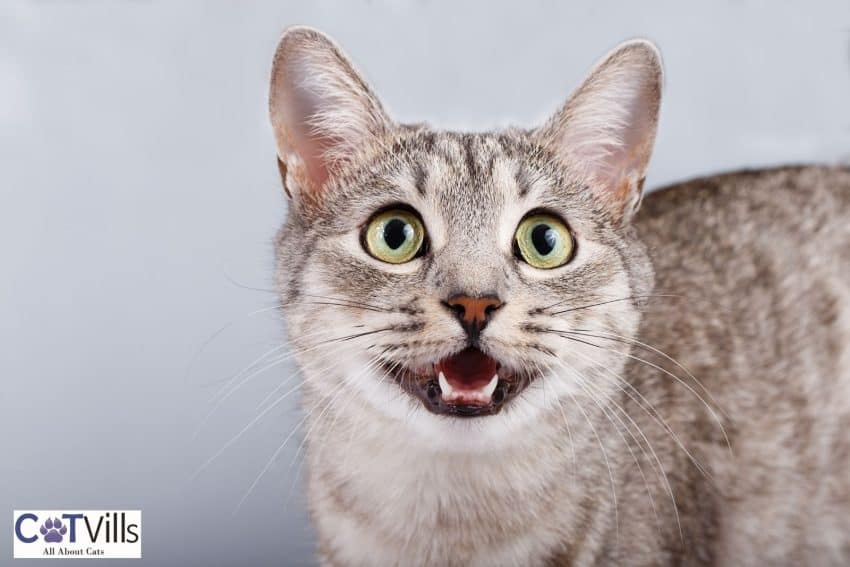
Meowing is actually a learned behavior – a body language – that has been developed because of domestication.
Cats usually do not meow to each other. Amongst themselves, cats communicate using their own sense of smell.
For humans, cats communicate through sound because we do not have the keen sense of smell that cats have.
Meowing becomes a more effective means of communication between the cat and its human.
Can Your Cat Become Mute and Why?
The short answer would be yes, your cat can become mute.
Cats have generally voiced pets.
The cat meow is a means of communication like no other.
Excessive vocalization may even pose a problem for many cat owners.
When your cat suddenly turns quiet, you may want to check out a few things since a cat’s silence may mean much more than him getting grumpy at you for not giving his cat food on time.
Reason 1- Respiratory Infections
Respiratory infections in cats are pretty similar to colds in humans.
These are usually bacterial infections that may cause throat problems (laryngitis) that may affect your cat’s vocal cords, making it difficult for him to vocalize.
Respiratory infections may result in symptoms similar to the common cold.
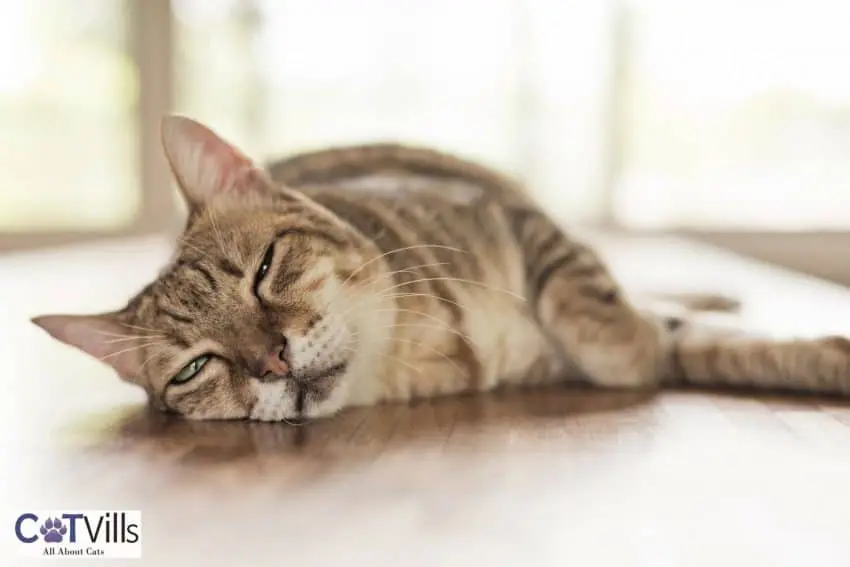
Clinical signs include nasal discharge, sneezing, lethargy, and swelling of the membrane around the eyes that may lead to discharge from the eyes.
You may need to bring him to a veterinary professional if this happens so he can be handed out the proper medication.
Reason 2- Overactive Thyroid Glands
Overactivity of the thyroid glands, otherwise known as hyperthyroidism, is a health issue that may cause hoarseness in cats. [2]
Bring your cat to your nearby friendly vet to get him diagnosed and treated for this condition.
Reason 3- Damage to the Voice Box
Nerve damage in the larynx, more commonly known as the “voice box”, can cause coughing in your cat and hoarseness as well.
Accompanying this is difficulty in swallowing which may lead to weight loss in your cat as well.
Bring him to a veterinarian if you notice this in order to immediately address this problem.
Reason 4- Polyps and Lumps
Polyps are small growths of tissue that can develop from organs.
Nasopharyngeal polyps, [3] although rare in cats, may happen and when they enlarge, may constrict the larynx which is located right behind the pharynx.
Tumors may also grow in the larynx and these may be either benign or malignant.
Tumors and polyps may lead to constrictions in the larynx which may cause irritation to the throat and hoarseness as well.
Again, if you notice any change in your cat’s meow as well as other changes in behavior, bring him to your vet to have him checked for any underlying health condition that may be a cause for this.
Reason 5- Change in Environment
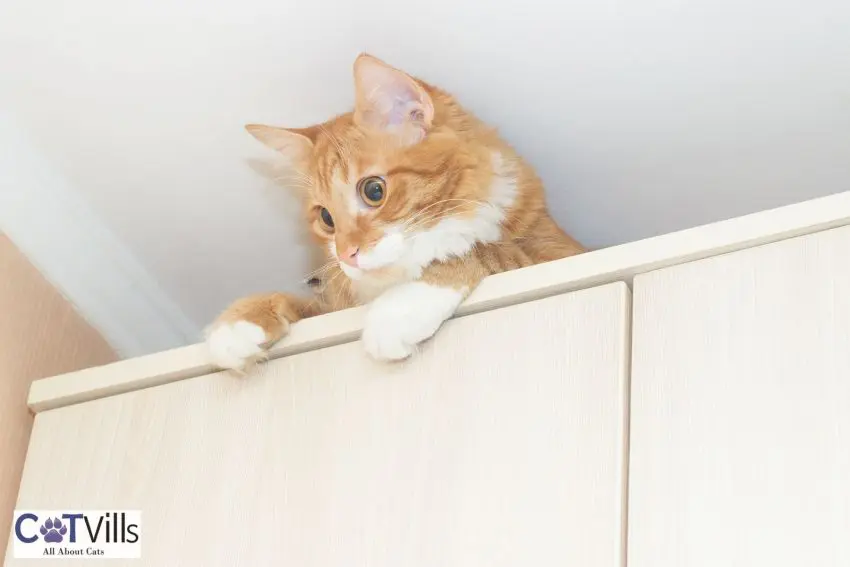
A change in environment can lead to a change in your cat’s behavior. Cats usually feel threatened and tend to be protective of themselves as part of their instinct to survive.
Think of this as your cat trying to get a feel of his new surroundings and home. He may, in fact, even hide in some corner while staying completely silent. It’s not about you.
It’s about him trying to see if he likes your new dig or not.
Reason 6- Aging
Cats, like any other living creature, have less energy as they age. Muscles and organs may start to change and degenerate. The same can be said for their vocal cords.
So, if you have a cat that has been used to meowing a lot and communicating with you in his younger years, then he may be doing less in his older years.
Instead of all the meowing and purring, your cat may resort to doing gestures in order to let you know what he needs.
Reason 7- Perhaps it’s their Nature?
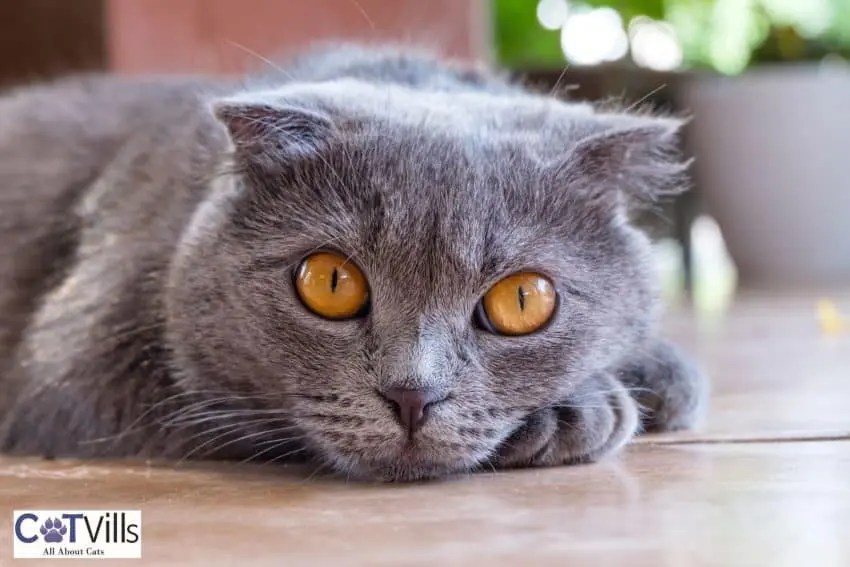
It can’t be helped that each cat has its own personality. As surprising as it may seem, there are quiet cat breeds that go against the grain.
As natural as it is for cats to make lots of noise, there will always be exceptions and these silent cat breeds are exactly them.
READ MORE: Obscure Cat Breeds
What about the Silent Meows?
You most probably could have seen it with some other cat. Or, you may have observed it in your pet feline.
You may have noticed your cat opening his mouth as if to yawn, and eventually be able to come up with something that’s sort of a squeak, that is, if he is able to put out any sound.
This is known as a silent meow.
Why do Cats do a Silent Meow?
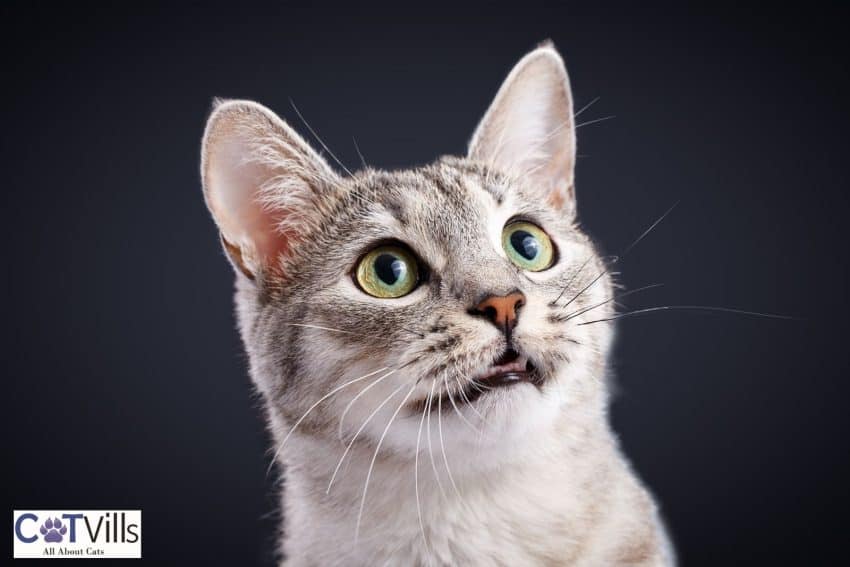
A silent meow is another way of communication for your cat. In fact, it may even be your cat’s way of talking to you.
There really is no exact known reason why cats do silent meows. Though to give you a heads up, these might be some of the reasons why your cats do their silent meow.
- You are the love of his life. If your cat does his silent meow whenever he’s with you, it just may mean that you mean the world to him. It’s his way of returning affection back to you.
- I AM HUNGRY. Perhaps famished to the point that he cannot push himself to make a sound. In short, it may be your pet feline complaining to you.
- If meowing is a noise that comes when your pet is filled with energy, a silent meow may be his way of saying that he needs a recharge. A silent meow means that he needs some silent time.
- It may be exasperation on his part. He may be feeling that you two aren’t connecting despite his attempts to talk to you with his loud meows.
- A silent meow may be your pet’s way of giving up on trying to connect with you his meows. It may be a change of tactic for him to finally get your attention and listen to what he says or trying to say.
Communication is not important only between humans. It is something that is important between a pet and his hooman too!
The meows of a cat may be its way of talking to you, but his silence may also be a sign of things that aren’t quite right at the moment.
Whether it’s meow or silence, the best thing to do is to observe your cat in order to get familiar with him. After all, many things can happen between you and your pet, even if it is in total silence.
FAQs
IS IT NORMAL FOR A CAT TO BE QUIET?
Yes, a sudden change in your cat’s behavior, such as his sudden refusal to meow, may be a sign of some underlying health issue. Observe any of these before going to a vet.
ARE THERE QUIET CATS?
Although generally known to be noisy, there are certain breeds that can be considered quiet cats.
Conclusion
Felines tend to be vocal pets, and in the event that there is a sudden change to your kitty’s behavior, considering all external factors, it would be wise to approach a vet for assistance.
References
- 1. November 2020 IW-LSC 26. Why do cats meow? [Internet]. livescience.com. 2020. Available from: https://www.livescience.com/why-cats-meow.html
- 2. Hyperthyroidism in Cats [Internet]. Cornell University College of Veterinary Medicine. 2017. Available from: https://www.vet.cornell.edu/departments-centers-and-institutes/cornell-feline-health-center/health-information/feline-health-topics/hyperthyroidism-cats
- 3. respiratory-problems-cats – Bishops Stortford Vets [Internet]. [cited 2022 Jan 6]. Available from: https://www.stortvet.com/category/Respiratory-problems-cats/
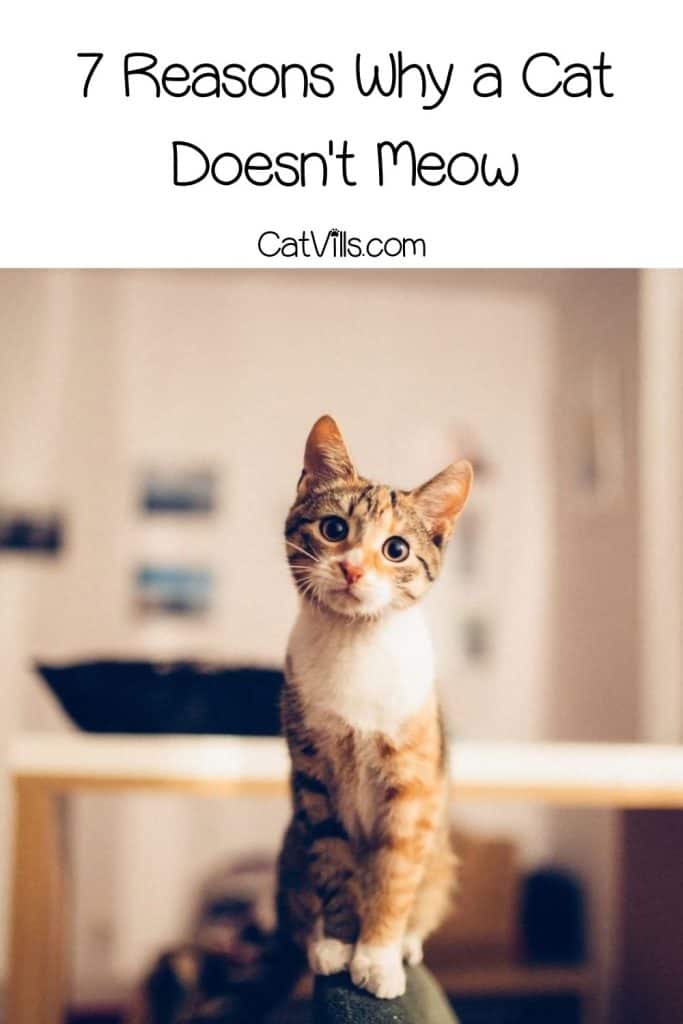
Can cats become mute? Let us know your thoughts on this topic below!

Dr. Linda Simon MVB MRCVS is a locum veterinary surgeon who has worked in London for the past 8 years. She graduated top of her class in small animal medicine from UCD, Dublin. She is currently a member of the Royal College of Veterinary Surgeons. Linda is the resident vet for Woman magazine and a frequent contributor to People’s Friend Magazine, the Dogzone website, Vet Help Direct and Wag! Linda also writes content for the CVS veterinary group, Vetwriter and a number of other establishments.
